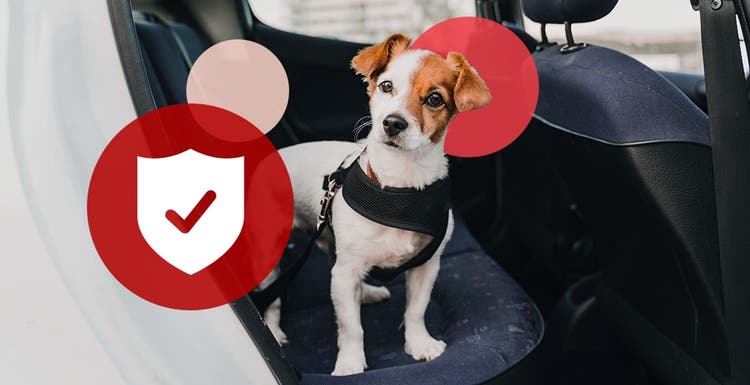Doggy daycare can be a great option for pet owners who want their dogs to socialize and exercise in a fun, supervised environment. Keep reading to see if it's right for you and your dog.
One of the major challenges of being a dog owner is ensuring your pup is happy and healthy when you're apart. Doggy daycare can help your dog get plenty of exercise and socialization while you're away, but is it right for your dog? Like any decision with pets, it's important to consider both the benefits of doggy daycare and the risks.
Is Your Dog a Good Candidate for Doggy Daycare?
Just like humans, certain dogs are more comfortable with social interactions than others. Various factors come into play, including your dog's age, energy level and general health. Also consider behavioral factors such as whether your dog has separation anxiety or aggressiveness around other dogs.
Ask yourself these questions (and also discuss with your vet) before making a decision:
- How old is your dog? In a perfect world, your dog would learn how to socialize with other dogs early on. Doggy daycare is an ideal setting to teach puppies how to play with others without the free-for-all action of dog parks. It's also a good way for younger dogs to expend their boundless energy. However, elderly dogs may find the environment a little too chaotic.
- Does your dog meet the health requirements for most doggy daycares? Most daycares require your dog to be spayed or neutered, have up-to-date vaccinations, be free of parasites like fleas or worms, and be in good health.
- Is your dog an adolescent, working breed or high-energy dog? Doggy daycare can be a highly stimulating and exciting environment, and dogs with a high energy level or lots of puppy playfulness will likely enjoy the experience.
- Is your dog fearful or anxious? Many factors can contribute to a pet's anxiety, including unpleasant past interactions with other animals or humans, or separation from their owner. As you work with a vet to alleviate your dog's anxiety, you should take precautions when socializing them with other dogs in places like daycare. For example, doggy daycare may help alleviate your dog's separation anxiety by providing a distraction, or it may worsen it by adding to the stress of being in a new environment.
- Is your dog aggressive with other dogs? While your dog may be nothing but sweet with you, that doesn't always translate to being friendly with other dogs. In this situation, working individually with a trainer may be a better option for keeping your dog active and healthy.
How Do You Make Sure Your Dog Is Safe (and Happy)?
Just like any parent sending their child off to their first day of school, dog owners can feel apprehensive about taking their dog to daycare. Will they get along well with other dogs? What if they get sick or injured? Here are some basic guidelines to help your dog remain safe and healthy:
Do Your Research
When researching doggy daycares, look for a few basics, including vaccination requirements, on-call veterinarian care and available play areas. Searching online and asking for recommendations can help, but it's a good idea to visit the daycare in person with your dog to see if it's a good fit. The most important things to consider include:
- Does the facility require proof of vaccination? Any respectable doggy daycare will require this, as it protects both your pet and other dogs.
- Are there multiple play areas? Humans love options, and dogs are no different. Giving them a choice of where to play and with whom can make the experience much more fun for your pup.
- Are the play areas well-supervised? It's all good fun until someone gets hurt. One to two staff members in each recreation space will hopefully ensure the dogs can have injury-free fun.
- Is immediate veterinary care available in case of an emergency? No matter how well-supervised they are, dogs can still get injured. Find out who the on-call vet is, and make sure you're comfortable with them.
Take Preventive Precautions
Your dog may not have fleas, but you can't be sure about the others at daycare. Here's how to help make sure your dog doesn't bring home unwanted pests:
- Help protect your dog from fleas and ticks by giving them preventive parasite treatments.
- Make sure your dog also receives regular heartworm prevention to keep them safe.
- If your dog is diagnosed with intestinal parasites, ensure they are treated promptly to prevent spread.
- Make a habit of checking for fleas and ticks when your dog comes home from daycare.
Come Prepared
You can expect the daycare to have plenty of toys for your dogs to play with, but your dog may need additional supplies the daycare may not provide, such as:
- Your dog's regular food: A change in diet can cause diarrhea, so bring the same food they eat at home.
- Supplements and medications: Provide clear, written details and instructions to the staff, and review them in person as well.
- Bedding: Especially when they're first adjusting to daycare, dogs may want some comforts of home. A clean indoor bed or blanket may help keep them relaxed.
Alternatives to Doggy Daycare
If a traditional doggy daycare isn't the right fit for your dog, look into a dog-training or dog-sitting program that provides an individual focus. Some veterinary clinics also have doggy daycares in the same building as the clinic, which may give you more confidence to leave your dog in their care. Understanding what best fits your dog's needs is all part of being an attentive pet owner.

Seresto® Flea & Tick Collar for Dogs
An easy-to-use, odorless, non-greasy collar that kills and repels fleas and ticks for 8 continuous months.

K9 Advantix® II
A convenient, monthly topical application that kills and repels fleas and ticks through contact, so they don't have to bite your dog to die. Do not use on cats.





